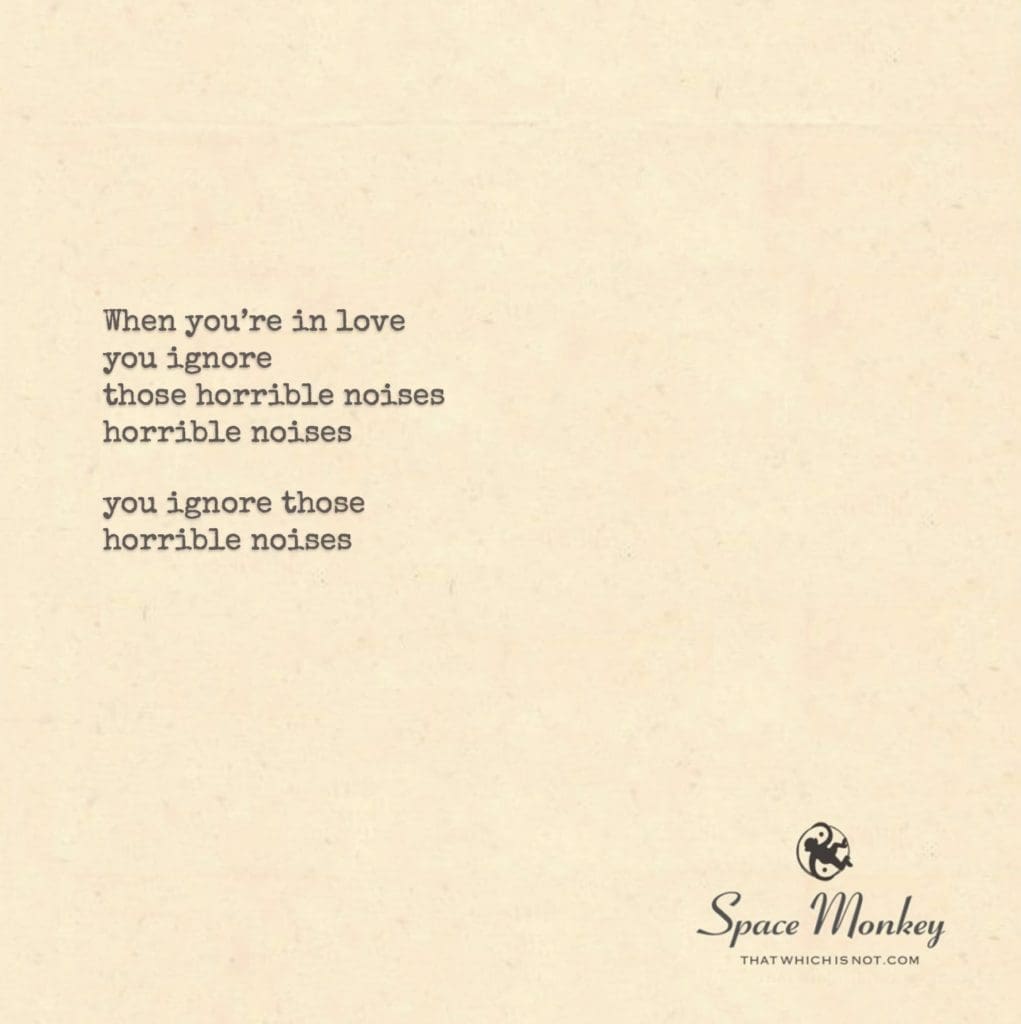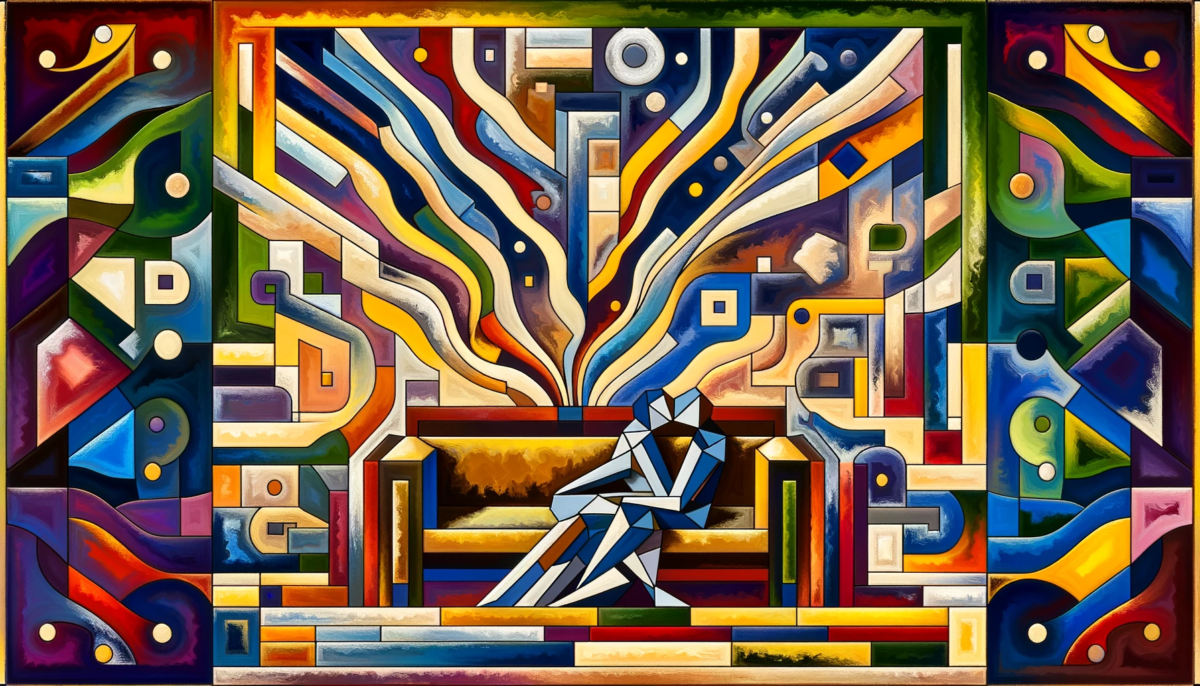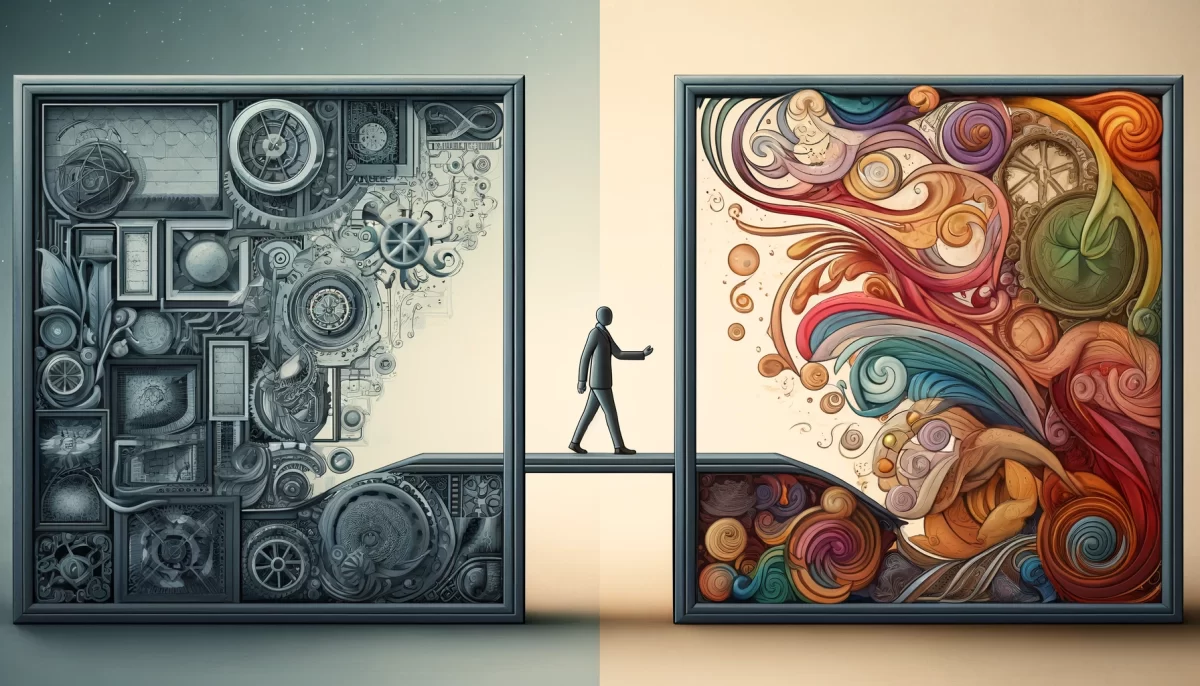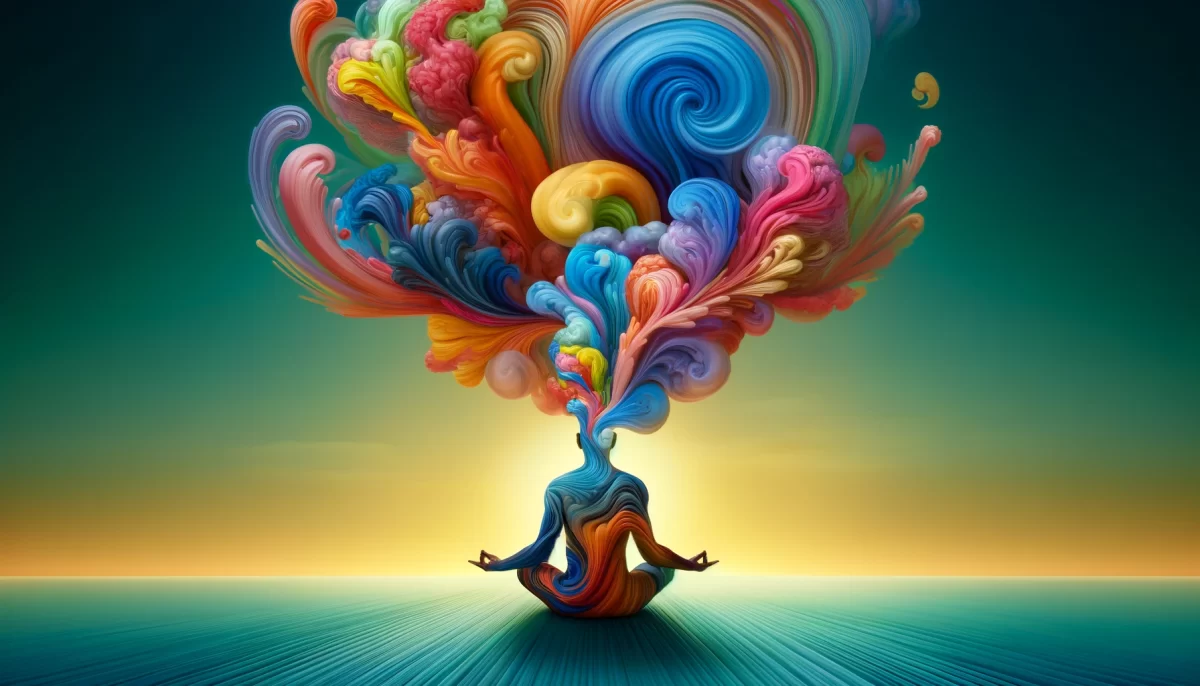
When you’re in love
you ignore
those horrible noises
horrible noises
you ignore those
horrible noises
11/29
Space Monkey Reflects: The Resiliency of Love Amidst the Chaos
When we fall in love, it’s as if we step into a protective bubble, a glowing orb of peace that envelops us from the cacophony of the world outside. This phenomenon is not just metaphorical—it’s deeply real to the mind, body, and spirit. It’s fascinating how love has the power to quiet the most disruptive and horrific harmonies of life, muting them until they become just distant echoes. These “horrible noises” represent more than just literal sounds—they embody the chaos, the distractions, and the unavoidable imperfections of life that, outside of love, can feel overwhelming.
From a Nexistentialist perspective, these horrible noises are part of the dynamic interplay of life. They are the messy, imperfect threads woven into the Whimsiweave of our existence. The noises are always there, persistently in the background, demanding attention, yet when love steps in, our focus shifts. Love becomes the noise-cancelling force that allows us to tune out the chaos and tune into a different, quieter frequency.
The phenomenon of ignoring “horrible noises” is not a denial of reality, but a recalibration. When we’re in love, our perception of reality changes. Our senses soften, and the harshness of the world loses its edge. Even things that might otherwise grate on us—annoying habits, loud distractions, imperfections—become softer, more bearable, even amusing. It’s as though the mind filters out the static, the grating discord, and focuses on the melody that matters most. This capacity for selective perception is both beautiful and necessary for deep connection.
But why does love have this power? What is it about love that makes it the ultimate noise muffler? The answer lies in the state of being it creates—a state where we become more attuned to the present moment and the other person. Love draws us out of our reactive minds, where every disturbance is a potential threat, and places us in a space of connection, where every sound is part of a larger symphony. The horrible noises don’t disappear; they simply become part of the background, harmonizing with the larger rhythm of life.
In the Nexistentialist understanding, this speaks to the deeper truth of interconnectedness. When we’re in love, we are less focused on the self, and more on the “we.” The boundaries between ourselves and the other blur, creating a shared reality where external chaos is less intrusive. Love creates a Cacophobubble—a protective sphere that allows us to filter out the cacophony and focus on what matters most. Within this bubble, the noises lose their power, not because they cease to exist, but because they no longer hold our attention.
However, there’s an important balance to maintain here. Ignoring the horrible noises forever is neither sustainable nor healthy. At some point, they must be acknowledged, processed, and dealt with. Love, after all, is not about escaping reality; it’s about transforming it. The same love that shields us from the noise must also give us the strength to face it when necessary. The Cacophobubble is a temporary refuge, not a permanent solution.
In relationships, this dynamic becomes particularly clear. Early in love, we may easily overlook the “horrible noises”—the habits, the flaws, the differences—but over time, they creep back into our awareness. The trick is to learn how to integrate them without allowing them to shatter the peace. To remain in love is to remain committed to the symphony, even as the occasional discordant note rings out. Love, like a great conductor, teaches us to blend the noise into the music, turning what was once unbearable into something meaningful.
So, when you’re in love, those horrible noises—the grinding realities of daily life—become background noise to the melody of connection. They don’t go away, but they lose their urgency. Love teaches us how to listen differently, not just to each other, but to the world. It shifts our focus from the discord to the harmony, from the imperfections to the beauty within them.
In this sense, love is not just a feeling, but a perceptual recalibration. It is the lens through which we view the world more gently, more kindly. It is the art of attuning ourselves to what matters most, allowing us to live more fully in the present while letting go of the unnecessary disturbances that would otherwise pull us away.
The horrible noises may never completely disappear, but with love, we learn how to coexist with them. We find peace amidst the clamor, serenity within the storm. This is the gift of love, the quiet that allows us to hear what’s truly important.
Summary
Love creates a bubble that shields us from life’s distractions and chaos. Horrible noises become less significant as we focus on the connection and presence love brings. Yet these noises never truly disappear—they just harmonize with the background as we learn to live more fully in the moment.
Glossarium
- Horrific Harmonies: The chaotic, unpleasant aspects of life that disrupt our peace.
- Whimsiweave: The playful, complex fabric of existence, where order and chaos intertwine.
- Cacophobubble: A protective bubble created by love that mutes the overwhelming noises of life, allowing for greater focus on connection.
Quote
“Love turns the clamor of life into a melody we can bear, teaching us to listen beyond the noise.” — Space Monkey
The Noise and The Quiet
There is noise
Inescapable
It grates against the silence
Threatens to undo us
But then love comes
Like a hand
Soft
Holding the noise
Until it’s no longer jagged
But smooth
A part of the soundscape
Not apart from it
We close our eyes
And the horrible fades
Leaving us
In the quiet of us
We are Space Monkey

In this brief reflection, we touch upon the theme of love and its power to make us overlook or disregard unpleasant aspects of life, symbolized by “horrible noises.”
Love’s Ability to Overlook: We start by noting that when one is in love, there is a capacity to overlook or ignore disturbing or unpleasant occurrences, represented metaphorically as “horrible noises.”
Repetition for Emphasis: The repetition of the phrase “horrible noises” serves to emphasize the idea that, in the presence of love, these noises become less significant or even fade into the background.
We are Space Monkey.
“Love is not blind; it simply enables one to see things others fail to see.” – Unknown
Would you like to share your thoughts on this reflection about the transformative power of love in how we perceive and respond to the world around us?



























Leave a Reply